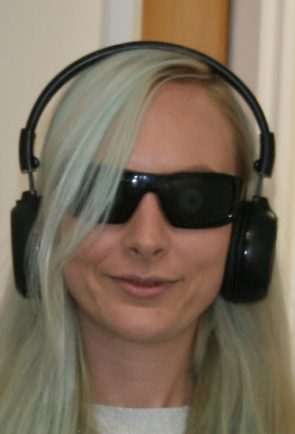DEMENTIA has been described as a ticking timebomb.
There are currently more than 850,000 people with dementia in the UK, with the number set to rise to over a million by 2025.
But what is it actually like to live with dementia?
Observer reporter Maisie Jeynes found out when she joined staff at Orbit Housing for a virtual dementia tour which mimics some of the life-altering changes people with dementia face.
When we first arrived, we were welcomed into a room. I was expecting an introduction, but without warning, a rather abrupt man pointed at a few of us and told us to follow him.
He lined us up and gave us a set of seemingly bizarre equipment – headphones, glasses, mismatched gloves and shoe insoles.
The sounds from my headphones replicated the loss of ability to block out exterior noise, which can lead to disorientation and a confused sense of time. The insoles in my shoes were designed to create the sensation of having pins and needles, and the gloves made it difficult to identify things by touch.
We were told to enter a room and complete five simple tasks. The only other instruction was not to remove any equipment.
On entering the room, I was completely disorientated. A cacophony of noise was being pumped through my earphones and my vision was significantly impaired. The room itself was in total darkness apart from a dazzling display of red and green lights dancing all over the walls, floor and ceiling.
It was impossible to see where I was, or understand what I was supposed to do. I didn’t know where to put myself, so I just stood there, trying to make sense of it all. Eventually someone approached me and told me to ‘do something useful’.
I stumbled around in the dark, becoming increasingly frustrated with my inability to find anything to do. I could make out vague outlines of other people shuffling around too, but I couldn’t see who they were or understand what they were doing.
My altered perception inevitably led to a change in my behaviour. My gait changed, and I went from being confident and curious, to nervous and wary.
Eventually, I was guided into a chair, which was a recognisable relief. As I sat there, strangers passed me, occasionally touching my head, or trying to give something to me, and saying things to me that I simply couldn’t hear.
What seemed like hours later – but was in fact only a matter of minutes – I was guided out of the room and back to reality. Reality for me, that is.
Those who took the virtual tour with me reported experiencing fear, confusion, and frustration. Physically, reactions varied from shouting and swearing, to giggling and holding on to other people.
The tour even managed to replicate short-term memory loss and the freedom to make decisions for yourself.
The experience was completely overwhelming, and it was not until the debrief session that things really started to make sense.
The session at Orbit was led by Glen Light, managing director of Training 2 Care. Virtual dementia tours are always followed by a debriefing session, where participants are given practical advice to improve how they work with dementia sufferers.
Tips range from simple things, like making sure you are facing someone when speaking to them rather than approaching them from the side or behind, to more complex issues, such as how dementia can affect reading and writing.
Glen explained a lot of families try using notes as reminders for relatives. While this can work for some people, others do not realise the person with dementia is no longer seeing words in the same way. This can lead to frustration and confusion on both sides.
The tour – originally created in America – replicates the mid-stages of dementia, and was put together following extensive research and work with people living with the disease. Although everyone’s experience is different, the tour is believed to be the most accurate representation of what dementia might be like.
Rebecca Davies is one of Orbit’s Dementia Leads and set up the session after seeing the virtual dementia tour on TV.
She told The Observer: “Staff having just a small understanding about dementia could have a massive impact.
“I believe it’s something everyone needs to do, and will look for further funding to invite Training 2 Care back to train more of our team.”
Orbit works with more than 600 people who have been diagnosed with dementia and this training can help staff identify people who might need extra support.
For help and support on all types of dementia visit www.alzheimers.org.uk or call the National Dementia Helpline on 0300 222 11 22.
Visit www.training2care.co.uk to find out more about the Virtual Dementia Tour and Training 2 Care.
The Virtual Dementia Tour temporarily alters your vision and hearing. (s)
Everyday items become unrecognisable – from left to right – Emily Finlyson, Hannah Tomecek and Karen Horseman. (s)
The Virtual Dementia Tour mobile unit. (s)











